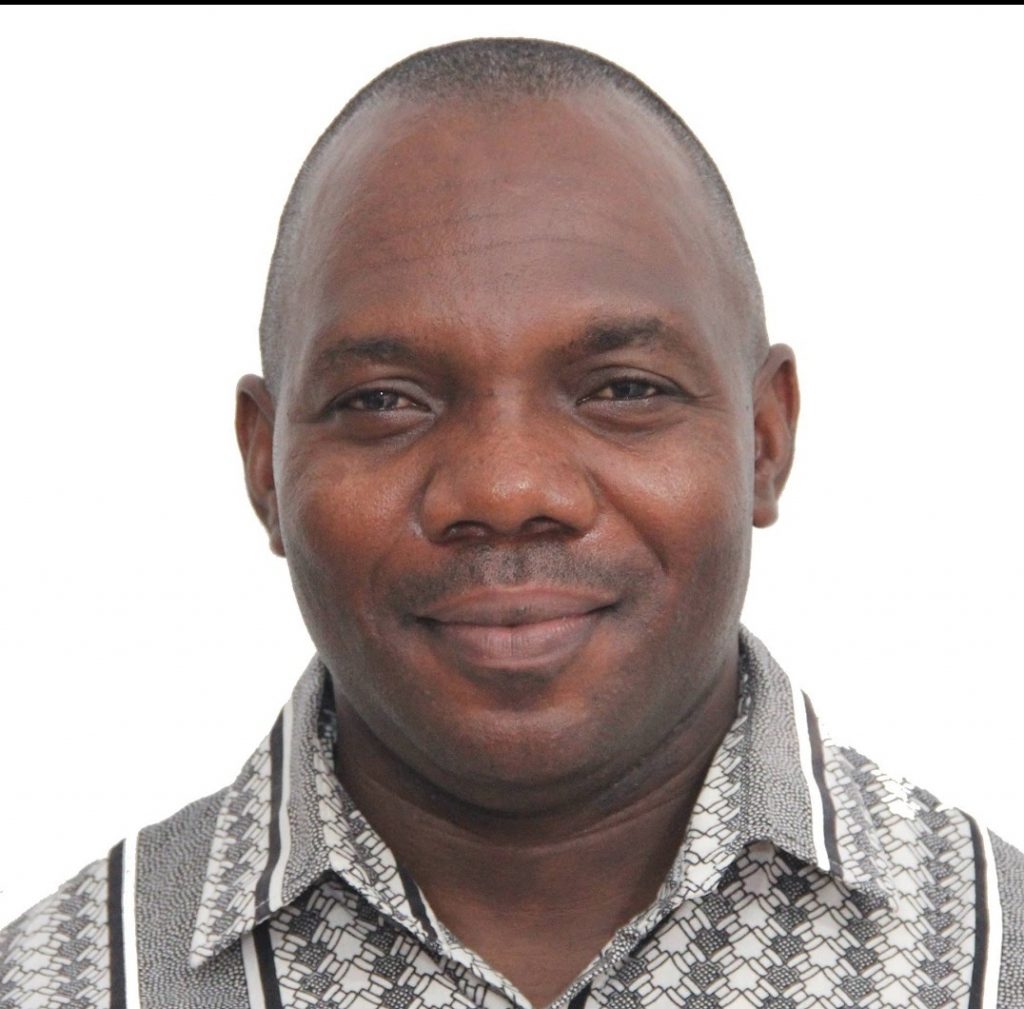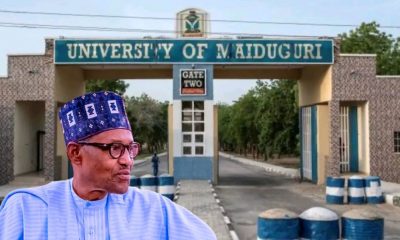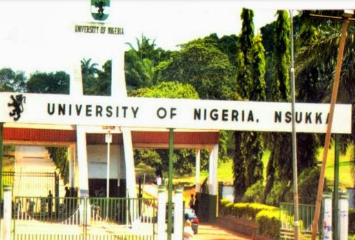Comments and Issues
Before the NANS protest turned into another ENDSARS: Is there hope on the horizon?
Published
3 years agoon
By
Publisher
By Matthew Ma
“The enthusiasm and positive outlook embodied in the massive protest movement called #EndSARS should inspire young people to vote for those with integrity, honesty, accountability, and political will. Voting for people with these characteristics will prevent retired soldiers, retired bureaucrats, and retired businessmen from becoming our “black market” political leaders.”
On September 19, students under the aegis of the National Association of Nigerian Students (NANS) blocked the road leading to the Murtala Muhammed International Airport, Ikeja, Lagos, protesting against the ongoing strike by members of the Academic Staff Union of Universities (ASUU). The students, in their hundreds, demanded an immediate end to the strike, which has entered its seventh month, urging the Nigerian government to meet the demands of the striking lecturers to enable them to return to class. They came out in large numbers to make a statement about the ongoing strike action by the Academic Staff Union of Universities, which is more than seven months old. But the security operatives blocked the students from gaining access to the airport as they caused traffic both inward and outward around the area.
While this was going on, Zahra Buhari, one of the daughters of President Muhammadu Buhari, graduated with a first-class degree from a United Kingdom university. Aisha Buhari, the President’s wife, disclosed this in a Facebook post when she congratulated her daughter for graduating with a First-Class Honors degree in Architectural Science. Zahra’s graduation came amid an industrial action by public university lecturers across the country. Public universities remained shut for eight months as the Nigerian government and the academic staff union failed to reach a consensus. The Buhari-led government has been at loggerheads with ASUU over poor funding of universities and the Integrated Payroll and Personnel Information System, a platform on which the government said all lecturers must be registered or they would not be paid salaries. But many Nigerians took to social media to condemn the wife of the President, saying her actions were insensitive to the plight of many Nigerians whose children are now out of school because of the ASUU Strike. According to them, the wife of the President should not have shared this on social media, particularly at a period when the students are angry.
As the protest by ASUU enters its eight months, stakeholders in the university education sector are intensifying calls for a law to bar political office holders from sending their children to foreign universities. In March 2022, a few weeks after professors shut down the universities, the House of Representatives again rejected a Bill that forbids public officials from sending their children to schools abroad without the approval of the Minister of Education. Honorable Sergius Ogun, representing Esan North-East/Esan South-East Constituency, sponsored the Bill before the lower parliament to prohibit public officials from sending their children to universities abroad unless the minister of education endorses it. The Bill by Mr. Ogun also requires that the officials provide proof of ability to pay the school fees of their wards. He raised concerns about the outflow of limited foreign resources to finance these expenditures. The lawmaker noted that more than 1 billion Naira entered the Ghanaian economy from Nigeria. The legislator drew a nexus between the poor state of public tertiary education in Nigeria and the thirst for foreign schools, arguing that the Bill could address the underfunding of higher education. At the same time, he also introduced a similar Bill to make it mandatory for public officials to get medical care in Nigerian hospitals. This Bill was equally rejected by lawmakers at the time, citing a breach of fundamental rights. They also argued that not all government officials sponsor their children to foreign schools with public funds.
The ASUU strike that has crippled academic activities in public universities across Nigeria has inspired solidarity protests from several non-academic unions, including the Nigeria Labor Congress (NLC) and the National Union of Electricity Employees. National Association of Nigerian Students (NANS), individuals, and stakeholders. Recently, Nigerian footballer and Super Eagles player, Ahmed Musa, criticized Nigerian politicians for sending their children to school abroad and leaving the government-owned Universities to shut down for months due to the prolonged ASUU strike. The Nigerian captain took to his Instagram page to question politicians who send their wards to study abroad without feeling remorseful. The Super Eagles star accused Nigerian politicians of running an education system they do not trust. He asked if foreign leaders have children studying in Nigeria. There are indications by several Nigerians that the federal government has not ended the prolonged ASUU strike because the majority of government officials’ children attend foreign universities, and, as a result, they are not bothered about the fate of students in public universities. But stakeholders believe that if we have a law that either stops or regulates foreign education for public officials’ children, it will propel the government to attend to issues confronting public university education. For them, it is an idea needed to save the face of public university education in Nigeria.
There was once a time when primary and secondary schools provided sound education in Nigeria. During this period, many notable figures in society today were the products and beneficiaries of these schools. But things started changing when leaders began sending their children to study abroad. One wonders why our leaders will neglect the country’s public university education system. The United Kingdom, the United States of America, Ukraine, Ghana, Malaysia, Egypt, and South Africa, to mention a few, have become choice destinations for Nigerians in search of quality education. If these foreign countries had not made their public university education appealing, would Nigerian politicians be sending their children there? The issue here is both political office holders and Nigerians, in general, have an obligation toward Nigerians. It is shameful to see that, rather than upgrading university education, the Nigerian government has bastardized public university education.
Today, no law would change government officials’ minds about sending their children abroad for education. There are several laws in Nigeria that politicians do not respect. Understandably, the law to bar political office holders from sending their children abroad would make any difference. Hence, the refusal by successive governments to fund public education is a product of an ideological consensus by the ruling class to make education available only in the hands of the few rich. In a country of over 200 million people, the tertiary education sector is a vital goldmine area. So, all government efforts over the years were toward destroying public universities and other tertiary institutions in the name of denationalization. So, for Nigeria’s public university education to work, we must sweep away this current crop of politicians and elect fresh minds with fresh ideas to create policies that will revive our educational sector. We call on our parents to show understanding and solidarity with students as they struggle to save the country’s university system from collapse. Unless parents rise to the occasion and join the students in putting pressure on the Federal Governments and ASUU to pay adequate attention to our universities, we may face a total collapse of our educational sector. Without a doubt, the lingering strike by members of ASUU has brought disoriented blows and shattered the plans and dreams of many students. Concerned Nigerians have expressed worry that continuous strikes have forced many students into anti-social vices such as cultism, robbery, and kidnapping. Others have argued that some female students have decided to engage in prostitution or marriage. Some became pregnant out of wedlock. But as it stands, the end is not in sight as the warring parties have not settled. Though there have been a series of meetings and protests by different stakeholders, the protracted strike has continued unabated. The National Association of Nigerian Students (NANS) has protested several times, asking the government and ASUU to find a solution and reopen the universities. But all efforts have yielded no result. It is already more than eight months since the striking lecturers began the industrial action to protest the Federal Government’s failure to fulfill the agreement it reached with the union. Nigeria is just seven months away from elections that could strengthen or set back its democracy. The good news includes a surge in voter registrations and a wave of civic engagement among young Nigerians who, in recent years, have often despaired of better governance through elections. The enthusiasm and positive outlook embodied in the massive protest movement called #EndSARS should inspire young people to vote for those with integrity, honesty, accountability, and political will. Voting for people with these characteristics will prevent retired soldiers, retired bureaucrats, and retired businessmen from becoming our “black market” political leaders.
In the 2019 general elections, professors who acted as the collation and returning officers subverted the outcome of most of the election results. Many of them who served as Returning Officers (RO) changed the election outcome by reducing the score of a leading candidate and increasing that of the losing candidate by the same votes. During the presentation of results at the INEC head office, many did not announce the election results they collated. They announced results collated by undisclosed people who only handed the results to them to declare. One of the professors (in a hilarious manner) demanded a torchlight to enable him to announce the results. These academicians that Nigerians presumed to be people of high integrity were among the ones that indulged in the illegal act of deliberate electoral manipulation and falsifying of election results during the collation process. Today, it baffles me that these same professors are holding the government and the students to ransom for unpaid salaries. They now go on strike at the slightest disagreement with the government. But if every policeman or woman, soldier, electricity worker, telecom worker, journalist, teacher, doctor, and nurse goes on strike at the slightest excuse, where would the nation be?
We hope that during the 2023 election, professors will not manipulate and falsify election results during the collation process. We hope that politicians will not use them to modify election results. There is a saying that once bitten, twice shy. We have all learned our lessons. We call on the aggrieved members of ASUU to return to the classroom for the sake of the students. ASUU and the federal government should not generate the downfall of students but take the education sector of Nigeria more seriously. Education is the bedrock of any development. Hence, the question is, is there hope on the horizon?

Rev Matthew Ma
- Rev. Ma, S.J, is a Jesuit Catholic priest and doctoral student in public and social policy at St. Louis University in the state of Missouri, USA.
You may like


Security vs Civil Liberties: The Clampdown on Nigeria’s Protest Movements


Democracy on Trial: 25 Years Later, What Has Nigeria Gained?


ASUU-UNIMAID to sue Nigerian government over university renaming to Muhammadu Buhari university


Edo Governor Okpebholo approves reinstatement of disengaged AAU staff


Lagos Government begins Judicial Inquiry into death of Journalist Pelumi Onifade


ASUU,UNN declares total strike, Universities on high alert
Trending

 Entertainment5 days ago
Entertainment5 days agoSimi addresses resurfaced 2012 tweets amid online backlash

 Health1 week ago
Health1 week agoSCFN, LUTH introduce bone marrow transplants as curative treatment for sickle cell

 Health4 days ago
Health4 days agoDeclassified CIA memo explored concealing mind-control drugs in vaccines

 Football1 week ago
Football1 week agoHarry Kane nets brace as Bayern edge Frankfurt 3–2 to go nine points clear

 Football1 week ago
Football1 week agoLate Flemming header stuns Chelsea as Burnley snatch 1–1 draw at Stamford Bridge

 Crime4 days ago
Crime4 days agoSenior police officers faces retirement after Disu’s appointment as acting IGP

 Crime1 week ago
Crime1 week agoTwo killed, seven injured in early-morning shooting in Richmond’s Shockoe Bottom

 Education6 days ago
Education6 days agoPeter Obi urges JAMB to address registration challenges ahead of exams

